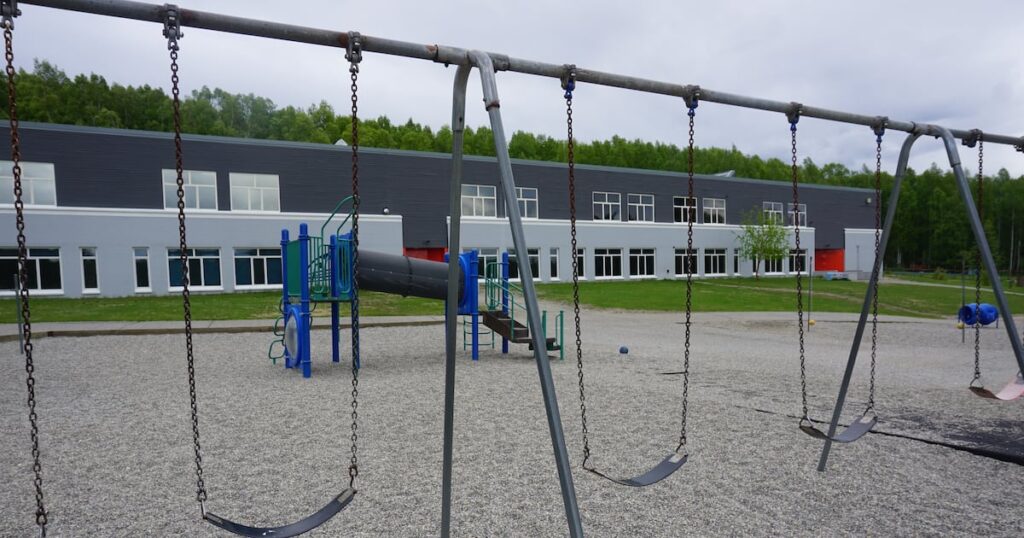
The Trump administration has put a hold on the release of approximately $6.2 billion in education funding, a move that includes an estimated $46.4 million earmarked for Alaska schools. This decision, announced by the U.S. Department of Education, has left educators and officials scrambling to assess the impact on various programs across the state.
The Alaska Department of Education and Early Development confirmed that the funds, which were expected to be disbursed on July 1, will not be released as scheduled. The grants affected cover a range of programs, including:
- Migrant Education — Aimed at improving educational opportunities for migratory children.
- Supporting Effective Instruction — Designed to enhance student achievement and teacher effectiveness.
- Language Instruction for English Learners — Focused on helping English learners attain proficiency.
- Student Support and Academic Enrichment — Intended to provide students with a well-rounded education.
- 21st Century Community Learning Centers — Offers expanded learning opportunities outside regular school hours.
The announcement comes as Alaska faces significant budget shortfalls, exacerbated by Republican Governor Mike Dunleavy’s recent veto of per-student funding. The Learning Policy Institute, a nonpartisan education research nonprofit, estimates that the withheld grants represent 15% of Alaska’s total federal funds for K-12 education. This includes $21.3 million for migrant education and $10.8 million for supporting effective instruction.
Impacts on Alaska’s Education System
Officials from the Anchorage School District, responsible for nearly 43,000 students, have already implemented a hiring freeze for positions funded by these programs. The district is currently evaluating the potential impacts of the funding delay.
According to Bryan Zadalis, a public information officer with the state education department, the delay is part of a broader review by the Trump administration. “While no timeline has been provided for when funds will be available, the Department has emphasized its intent to ensure decisions are aligned with federal priorities and statutory responsibilities,” Zadalis stated.
“At this time, we are not able to provide specific guidance on how this delay may impact district-level planning or program operations,” Zadalis said. “However, DEED is actively monitoring the situation and will be prepared to take advantage of any flexibility or waiver opportunities that may be offered.”
Political and Educational Reactions
Senator Löki Tobin, an Anchorage Democrat and chair of the Senate Education Committee, has strongly criticized the administration’s decision. “It is absolutely abhorrent and disgusting to me, the continued insidious, quiet and now very loud attack on the fundamental right for every child to be able to access a quality education,” she said.
Tobin highlighted the compounded challenges faced by Alaska schools, noting that the funding freeze could cost Anchorage an additional $15 million. She expressed concerns about the broader implications for educational equity and access.
“This is denying opportunity to an entire generation, and they should be ashamed,” Tobin remarked, pointing to the potential long-term effects on students’ futures.
Historical Context and Future Implications
This development follows a pattern of contentious education funding decisions during the Trump administration, which has often prioritized federal budget cuts. The freeze on grants echoes previous disputes over educational priorities and funding allocations at the national level.
As Alaska grapples with these financial uncertainties, the state education department is considering rule changes to comply with federal requirements, which could further strain local school budgets. The situation underscores ongoing debates about the role of federal funding in public education and the balance of power between state and federal authorities.
The move represents a significant challenge for Alaska’s education system, with potential ripple effects on summer programs and long-term planning. As the state awaits further guidance from the federal government, educators and policymakers are preparing to navigate a complex and uncertain landscape.
Originally published by the Alaska Beacon, an independent, nonpartisan news organization that covers Alaska state government.





